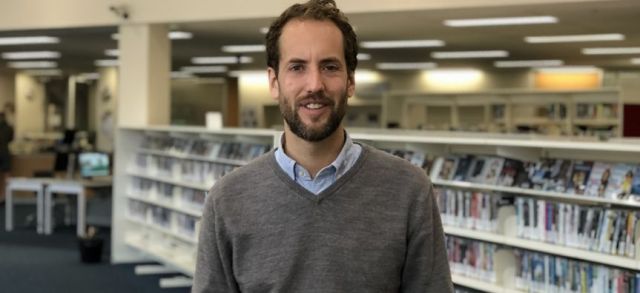Council amalgamations in NSW have created a revolving door of staff as new councils struggle to hold on to their general managers.
The game of management musical chairs has gathered pace recently and many of those parachuting belatedly into the top jobs have been from NSW Premier Mike Baird’s Northern Beaches stomping ground.
Rik Hart became the latest (interim) General Manager of Sydney’s fledging Inner West Council last week after respected GM Vanessa Chan resigned.
Hart spent ten years as one of the state’s highest paid GMs during his tenure at Warringah Council before the council merged with Pittwater and Manly and he was appointed Deputy GM of the new Northern Beaches Council, which turned out to be a brief gig.
Chan’s reasons for resigning have been kept on the down-low, although she cited “personal reasons” but bringing three councils together while keeping the new council’s daily operations going and dealing with fierce public hostility to the merger would not have been an easy task. Chan was previously GM at Ashfield Council and had notched up more than 15 years working in local government.
The inner-west merger between Ashfield, Leichhardt and Marrickville Councils has already claimed the scalps of Leichhardt GM Peter Head and Marrickville’s Brian Barrett, who both quit rather than take on a deputy GM role.
A slew of other senior staff joined them in walking out the door, including Leichhardt’s Director of Corporate Services Matthew Phillips; Marrickville’s Director of Planning and Environment Tim Moore; Director of Infrastructure Services Neil Strickland and Director of Corporate Services Steve Kludass.
The freshly minted Northern Beaches Council has haemorrhaged senior staff since the merger between Pittwater, Manly and Warringah was pushed through in May.
The mass exit is unsurprising given the council was top heavy at its inception, with an administrator, interim general manager and eight deputies.
Henry Wong quit as Deputy GM and ended up as Strathfield Council’s acting GM after spending years in the same role at Manly Council.
Other senior managers dropped in from the Northern Beaches and scattered further afield include former Warringah Council Deputy General Manager Malcolm Ryan, who left for Western Sydney to take up a job as GM at Cumberland Council – an amalgam of parts of Auburn, Holroyd and Parramatta local government areas, a contract which runs until March 2018.
Deputy GM Melinda Hewitt (previously Pittwater Council’s Deputy GM) left Northern Beaches Council in August after seven years on the peninsula, as did former deputy Stephen Clements.
CEO at Local Government Professionals Australian NSW, Annalisa Haskell said some senior managers left before they lost their jobs or had to work in a new set up they did not like under a merged council.
“There are people going everywhere,” Haskell said.
She said that movement at the top was “inevitable” following council mergers, particularly because merged councils would be creating a “new order”, which may jar with established staff.
“The leadership needs to establish a new organisation and that can be challenging if you have got the incumbents there. Change is always difficult. In any organisation there is a positive and negative.”
The situation had the potential to create conflict between general managers and their deputies, most of whom had served as GMs before the mergers.
Instability at the top has also affected those councils threatened with amalgamation but who have not yet merged. Their respective general managers are well aware that their necks are on the guillotine.
Arthur Kyron left his GM post at Waverley Council in April, citing the uncertainty created by mergers as the reason for his resignation. A proposal to merge Waverley, Randwick and Woollahra is still on the table, with Woollahra resisting. One interim GM would be appointed to oversee the transition.
Cabonne Council lost General Manager Andrew Hopkins in August after four years in the job after Hopkins said he had to think of his family and career while the merger between Cabonne, Blayney and Orange was still going through the courts.
Strathfield Council is on its fifth Acting General Manager (Henry Wong) since its long-serving General Manager David Backhouse walked out the door in February. The council remains locked in a court battle resisting the government’s proposal to merge it with Canada Bay and Burwood Councils.
Local government veteran Backhouse quit Strathfield Council after 30 years, ten spent as GM. Two other senior staff quit too: Corporate Affairs Director Neale Redman and Head of Planning David Hazaldene.
But their departures may not have been solely precipitated by amalgamations.
An October 2015 Office of Local Government investigation found that Strathfield Council spent almost $900,000 on legal services and advice from International Property Group over a four-year period and concluded that it had little to show for it.
The investigation identified ‘systemic deficiencies’ and failures in administration and slapped a performance improvement order on the council.
Not even the lower north shore has proved a safe haven for general managers. The state government’s proposal to merge Mosman, North Sydney and Willoughby Councils is likely to have created a sense of unease among the people who work there.
Mosman’s GM Veronica Lee chucked in her job in August and left to become Executive Director of Corporate Service at the NSW Office of Sport. North Sydney GM Warwick Winn jumped ship for Manningham Council in suburban Melbourne in April.
President of Local Government NSW Keith Rhoades said he was aware of a great deal of movement at senior level within councils, much of it due to the uncertainty created by mergers.
“They’ve got to think about their families and their futures and their careers, if there’s a position come up that might be more secure for them. Job security is something to be treasured these days,” Rhoades said.
Haskell agreed: “When you’re in a state of unknown it’s always hard so I guess some people are changing to make active decisions about their careers. I think you would see more movement there just because of the uncertainty.”
Some managers have left councils under threat of merging for those that have already gone through the process. Haskell said: “there are opportunities coming up in merged councils for people who may be want surety.”
Lee Furness hotfooted it out of the doors as Director of Corporate Policy at Shellharbour Council (slated to merge with Wollongong) this month to become Executive Director at Hilltops Council.
Haskell said the massive personnel changes presented both opportunities and dangers.
There was a possibility the sector could lose skills and corporate memory but she said this was part of a wider trend with the retirement of baby boomers at senior level.
Another fear was that the sector could become fragmented into three: councils where there had been no change, amalgamated councils and those councils which might be merged.
“Although there were lots of little councils before it was quite cohesive,” she said. “It feels a little bit more fragmented at the moment. We have people who are not changing that are stable, groups that are waiting and people who have changed. It’s very abnormal at the moment.”
Haskell said councils were stronger when they connected and shared best practice.
Comment below to have your say on this story.
If you have a news story or tip-off, get in touch at editorial@governmentnews.com.au.
Sign up to the Government News newsletter



Ms Haskell, the so called CEO or chief salesperson at Local Government Professionals Australian NSW, utterly misses the point. That is not surprising given the mindless role that LG Pro have played in the merger debacle and its impact on senior staff. Her last comment is typically mindless.
The point is a mass of reshuffling and the best people simply up sticks and go away. Staff morale plummets and pity the ratepayer who will pick up the tab for this undemocratic putsch by Toole and Baird.
Phillipe,
I would agree with your comments regarding “mass reshuffling”, but your attack on Ms. Haskell is in itself ‘mindless’ and ignorant of the organisation that she leads.
The mission of Local Government Professionals NSW is “to strengthen the professional capability of our members, by providing access to the best resources and support through our networks, training, communications and information”.
Given this and the apolitical nature of the organisation, what role do you think LG Professionals should have played?
I think Ms Haskell sums up the current situation rather well.
Although feedback and discussion is vital in producing the best outcomes through the amalgamation process we would just like to respond to, and refute the above comment. Local Government Professionals Australia, NSW is, and has always been committed to supporting our members as an association for over 100 years. With the interests of the people at the forefront of local government, we continue to advocate on behalf of our strong and growing group of members with things such as; President, Barry Smith being involved with the Ministerial Advisory Group, a collaborative effort with LGNSW in successfully lobbying for the protection of entitlements for senior staff through the reform, outplacement, career, legal and tax support and services, the facilitation of short-term contract opportunities as well as a number of handbooks specifically written to support our members through this period of change – just to name a few.
Our Board of Directors represent a diverse cross-section of leaders across local government in NSW and provide key insights and direction for the continued evolution of the association to deliver solutions for our members, not just now during the reform period, but throughout all stages of their careers. Local Government Professionals Australia, NSW are proud and dedicated to advocating on behalf of our members to ensure that it is the ‘people’ who make the sector what it is as we remain focused on helping the people of the sector, as well as their councils, to achieve their goals. This will ultimately result in a more effective workforce and better outcomes for their communities.
It is a pity that LGPro did not act to protect its members interests. Apolitical is fine but the organisation has acted like a bunch of kiss butt lackies to a government hell bent on dismantling local democracy.
As has been pointed out elsewhere the LGPro acted weakly when the senior officer contract process occurred many years ago and that weakness and spineless snivelling carries on.
As for Mr Smith involvement in the MAG – fat good that did for senior staff or Barry! Handbooks? Wow…..
Dear of dear……what a very defensive and ill informed response to Phillipe’s observations. Sometimes professional organisations need to stand up for what they think is best. Not just roll over and have their tummies tiggled by the government. Drain the swamp.